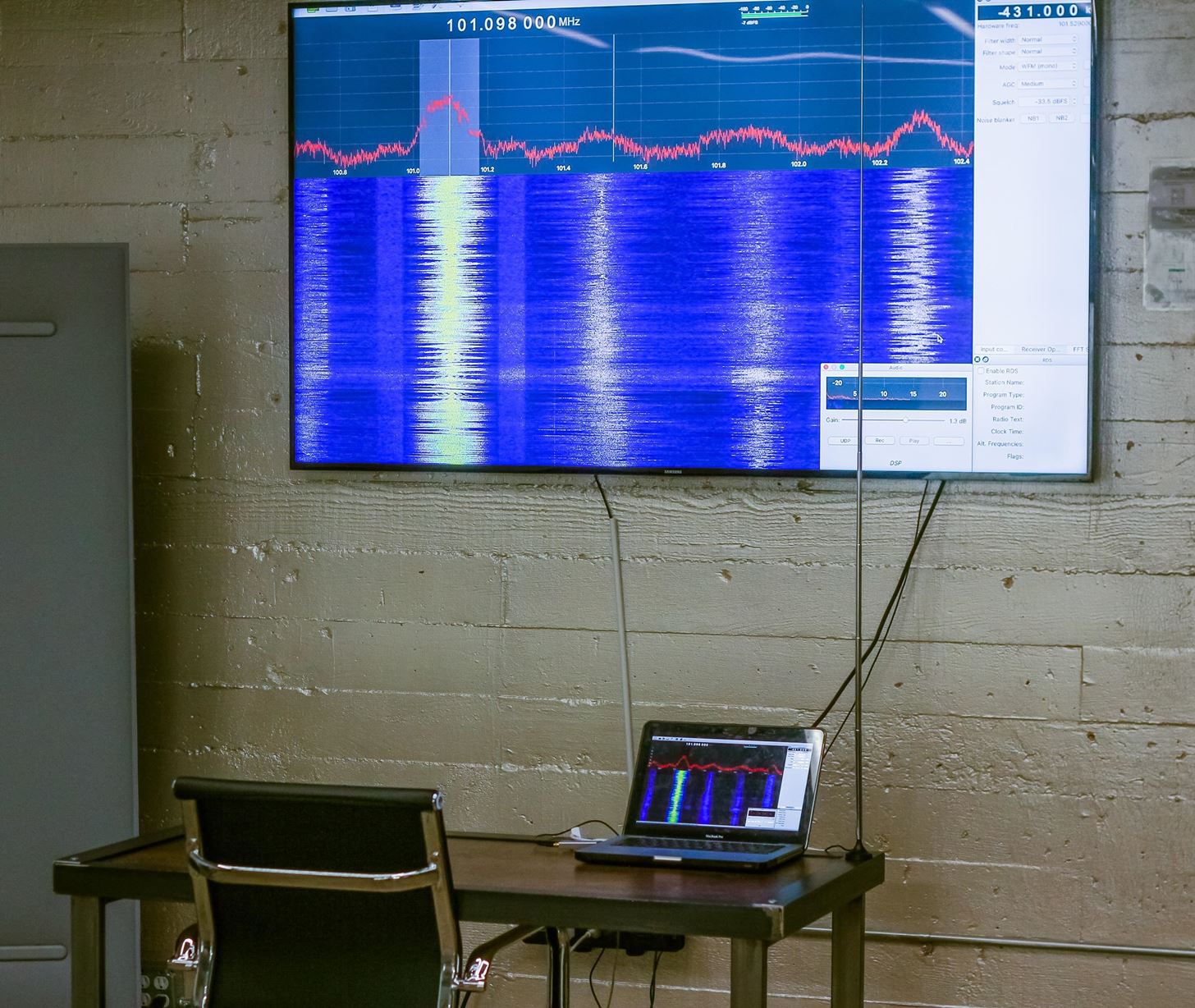Software Defined Radio Online Course


This four day course is. Our primary emphasis is on the theory and design of state of the art analog circuits and digital algorithms for software defined radio. Software-Defined-Radio (SDR)-Theory and Implementation. Proficiencies we’ll focus on during this Course; Sampling, Communications and Elements of the SDR.
June, 2015 REDHAWK Tutorials Software Defined Radio Solutions, LLC will be offering two online tutorials, RH1 and RH2, in REDHAWK. RH1 will be offered on three consecutive Thursdays, July 16, 23, and 30 from 3 p.m. Eastern standard time.
RH2 will be offered in the near future once the dates have been finalized. Registration for RH1 is through Reservations for RH2 may be made via an email request to. Class size for both RH1 and RH2 is limited to the first 25 students.
Class participants will need to install GoToMeeting to take this course. GoToMeeting can be downloaded from the WinnForum websiste once you complete your registration. May, 2015 SDRS, LLC's Dr.
Carl Dietrich, Jason Snyder and Fred Romano Hold REDHAWK Tutorial at the 25th Wireless @ Virginia Tech Symposium and Summer School! As part of the annual 2015 25th Anniversary Wireless Symposium and Summer School, Dr. Carl Dietrich, Jason Snyder and Fred Romano held a tutorial in REDHAWK that taught the basics of REDHAWK. Microsoft Office 2007 Enterprise Fully Activated Rarity. As a follow up to that tutorial, SDRS will be offering two tutorials in REDHWAK in conjunction with WinnForum. Each tutorial will consist of 3 two-hour classes. The first tutorial will revisit the basic fundamentals of REDHAWK, and the second tutorial will build on the fundamentals to offer more advanced concepts.
The first tutorial is offered on Thursdays, July 16, 23, and 30th. March, 2015 SDRS, LLC will be offering an online course on Liquid DSP / OFDM / TDMA in conjunction with WinnForum April 16, 23, and 30 2015. This course will provide hands-on experience in software implementation of orthogonal frequency division multiplexing (OFDM) and time division multiple access (TDMA), two key components of the LTE cellular standard and other communication standards. We will begin with a brief overview of OFDM, TDMA, software defined radio (SDR) and related concepts and then lead participants through hands-on tutorials that use liquid-dsp, an open-source C-language library of physical layer digital signal processing functions for SDR. The course includes a brief review of C / C++ and basic operations including filtering and framing, as well as use of liquid-dsp for OFDM communication and implementation of a basic TDMA MAC layer.
DURATION: 2 DAYS CAPACITY: 20 pax SEATS AVAILABLE: ONLINE REGISTRATION IS CLOSED PRICE: EUR1499 (early bird) EUR1999 (normal) Early bird registration rate ends on the 14th of February Overview One of the key attributes of the Internet of Things (IoT) is that it makes heavy use of wireless communications to allow for mobility and easy-of-installation. It is important to note this is not just Wi-Fi, but all manner of other Radio Frequency (RF) protocols: Bluetooth, BTLE, ZigBee, Z-Wave – to name just a few. The increasing ubiquity of such devices and networks promises to make life easier (smart fridges, ), however manufactures often overlook the security in the implementation of this RF communication systems. This course will teach you the fundamentals of how to use Software Defined Radio (SDR) to analyse, demodulate and decode RF signals used in the wireless IoT, and then how you can perform your own research and penetration testing to test whether a system is secure, or vulnerable to attack.
There will be a combination of theory (explaining RF and Digital Signal Processing concepts), and also hands-on practical components with SDRs. We will use open source software (Python and GNU Radio) to analyse existing signals, and also to allow you to create your own! Who Should Attend Anyone that has an interest in getting a taste of reverse engineering systems that employ RF communications, and analysing the security aspects of the underlying wireless protocols. Key Learning Objectives • Understand some fundamental DSP concepts • Use a SDR to receive and transmit RF • Understand how IoT devices employ RF for wireless connectivity • Become familiar with common security concerns, vulnerabilities and mitigations surrounding wireless communications system • Get a view into the steps required to reverse engineer and pentest wireless communications systems Prerequisite Knowledge Attendees must have basic knowledge in Linux and Python. Hardware / Software Requirements Attendees should have a modern Laptop that supports booting from a USB drive with at least two free USB ports. One port will be required to boot a Live USB flash drive we will supply, and the other will be used to connect to a SDR that we will lend to participants (preferably a USB 3 port). Agenda Day 1: SDR/Wireless Intro • The RF Spectrum • Sampling • SDR Architecture • DSP • Filtering • Modulation • Data Transmission • Demodulation • Data Reception Day 2: Hacking!
• Capturing Signals • Analysing a Waterfall Plot • Reverse Engineering Transmissions • Decoding a Signal • Analysing Data Formats • Creating a Transmitter • Injecting Wireless Packets.